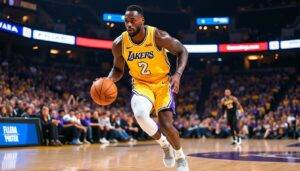Charles Barkley claims that modern NBA coaches exhibit cowardice

Charles Barkley, known not only for his dominant days on the court but also for his blunt, no-nonsense analysis off it, hasn’t held back in his latest critique of the NBA coaching scene. As the 2025 season unfolds, “Sir Charles” singles out modern NBA coaches, labeling many as “cowards” who shy away from truly commanding their teams. In his view, the players’ astronomical salaries and burgeoning influence have chipped away at coaches’ authority, leaving many coaching staffs too intimidated to enforce discipline or strategy. This sharp commentary sheds light on a growing divide in the league’s culture—where the bench’s role and leadership dynamics are fiercely debated, raising essential questions about the future of basketball leadership in the age of player empowerment.
Charles Barkley Calls Out Cowardice in Modern NBA Coaching
Barkley’s frustration centers on the notion that coaching today requires guts—a quality he believes is increasingly missing. The former Phoenix Suns star sees a troubling trend where coaches, rather than guiding their teams with firm hands, hesitate to push back against high-earning superstars who effectively run the locker room. His words on “The Dan Patrick Show” were pointed:
- Coaches are scared to coach. They avoid confrontation and tough decisions.
- Players hold the power. The huge contracts have tilted the balance, with stars leveraging their status over coaches.
- Bad coaching ruins more players than anything else. Lack of strong leadership on the bench leads to players not reaching their full potential.
Barkley reminisced about legendary coaches like Pat Riley, Billy Cunningham, and Gregg Popovich—figures who've commanded respect and enforced discipline, molding greatness. He argues that today’s NBA misses that element, creating a softer coaching environment where enforcement is sacrificed for harmony.
The Impact of Player Empowerment on Coaching Authority in the NBA
This shift reflects the enormous financial clout players wield, thanks to lucrative deals with brands such as Nike, Adidas, Under Armour, Puma, and Reebok. Stars like LeBron James and Kyrie Irving don’t just influence gameplay — their endorsement deals strengthen their negotiating power within teams. The elevation of player-brand synergy inevitably challenges traditional coaching roles.
- High-profile endorsements increase player leverage. Contracts extend beyond the court.
- Coaches must navigate personalities bolstered by external brand influence. This complicates discipline and authority.
- The coaching staff's role shifts more toward management than mentorship. Sometimes, it means avoiding conflict with franchise players.
The rise of stars associated with elite sneaker lines like Jordan Brand, New Balance, and Converse challenges coaches to maintain control in an atmosphere where players have unprecedented platforms and public influence.
How Bad Coaching Staffs Can Ruin Promising NBA Careers
Barkley highlights that while players hold power, much of the blame falls on the coaching staffs that fail to harness talent properly. A poor coaching fit can stifle even the most gifted athletes, turning potential Hall of Famers into lost opportunities.
- Lack of accountability. Players may skate on poor performance if coaches are unwilling to confront them.
- Inconsistent strategy. Without confident coaching, game plans are erratic, leaving players confused about roles.
- Missed skill development. Coaches hesitant to push players limit growth, especially for younger stars like Victor Wembanyama.
Such coaching inefficiencies contrast sharply with legendary mentors from previous eras, underscoring Barkley’s lament. The balance between leadership and empathy is delicate, and Barkley believes many modern NBA coaches err heavily on the side of caution to avoid rocking the boat.
Examples From The 2025 NBA Season Showing Coaching Cowardice
The 2025 season offered multiple illustrations of Barkley’s critique in action:
- The fallout from coaching changes amid playoff disappointments, including teams like the Lakers and Suns under coaches Darvin Ham and Frank Vogel.
- Public debates sparked by analysts criticizing coaching decisions yet missing calls on player accountability.
- Instances where players openly challenge coaches without repercussion, showing the cracks in traditional authority frameworks.
Whether it’s the pressure of big-market expectations or the balance of managing superstars with egos inflamed through major endorsement deals, the coaching landscape is undeniably shifting. Charles Barkley’s blunt assessment underscores a crucial crossroads in NBA leadership.
Barkley’s outspokenness serves as a wake-up call for the league. His insights, drawn from firsthand experience battling some of the toughest coaches in basketball history, urge coaches to reclaim their dominance rather than capitulate to player power.

